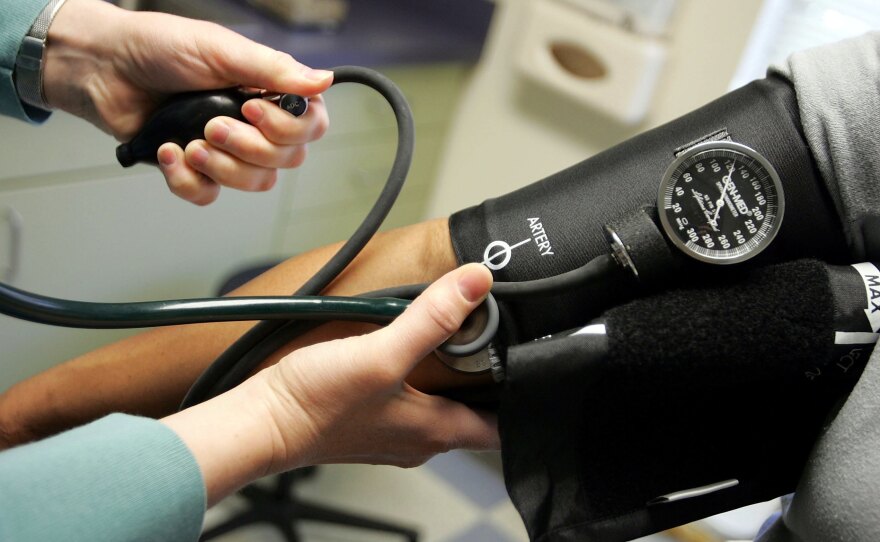Efforts across the U.S. in recent years to encourage medical students, nurse practitioners and others to go into primary care, especially in underserved areas, are built on a consensus in research: Primary care is good for patients.
"It's the foundation of the health care system," says Dr. Ishani Ganguli, Harvard assistant professor of medicine and physician in general internal medicine and primary care at Brigham and Women's Hospital.
So Ganguli is worried about the results of a big study she and colleagues published Monday in Annals of Internal Medicine: Adults with commercial health insurance are visiting primary care providers less often than they did about a decade ago.
Using data from an insurer that provides health coverage to about 20 million people per year across the United States, Ganguli and colleagues found that visits to primary care providers made by adults under the age of 65 had dropped by nearly 25% from 2008 to 2016.
What's more, adults who went at least a year without a single visit to a primary care provider increased from about 38% to 46% in that period.
"We should be concerned," says Dr. Kimberly Rask, chief data officer at Alliant Health Solutions, who wrote an editorial accompanying the study.
"Primary care has all kinds of benefits," Ganguli says, "both for patients but also for populations." Research shows that people are healthier when they see a primary care doctor, rather than a specialist, for their routine care. Where there are more primary care providers per capita, death rates drop for cancer, heart disease and stroke, among other illnesses — and life spans lengthen.
Checking in with a doctor by email is popular with some patients, as is turning to an urgent care clinic for health needs. However, Ganguli says, there's no substitute for building a trusting relationship with a discerning provider — someone who knows your medical history, and might be more likely to screen you for depression when a sore throat doesn't seem to be your only problem, or schedule you for bloodwork, a PAP smear, or vaccines that you need.
The consistency of the decline in such visits across all demographics was surprising, Rask says. People with low incomes and younger people had especially large decreases, but the drop in primary care visits showed up across all age groups and income levels.
Interestingly, preventive checkups actually increased, perhaps, the scientists speculate, because the Affordable Care Act made such appointments free, or at least cheaper, for more Americans. But problem-based visits – for a sore throat, flu or other symptoms of sickness or injury — fell by more than 30%.
It's hard to pinpoint exactly what's behind this decline, the researchers say. But the evidence points toward rising out-of-pocket costs as a factor. The average out-of-pocket cost for a visit to the doctor related to a health problem rose from about $30 to nearly $40 during the study period. And the share of primary care visits subject to a deductible jumped, too: Less than 10% in 2008, versus more than 25% in 2016.
"There is a lot of data showing that when you raise health care costs, people will receive less care," Rask says. "But it doesn't mean that they only stop unnecessary care. They will reduce both necessary and unnecessary care."
"When patients have to pay more, they may pause, and they may not go in if they don't think it's that urgent," says Nadereh Pourat, a professor of health policy and management at UCLA's Fielding School of Public Health. But health problems can worsen, she adds. "You don't want them to wait til things get really bad."
Copyright 2020 NPR. To see more, visit https://www.npr.org.






